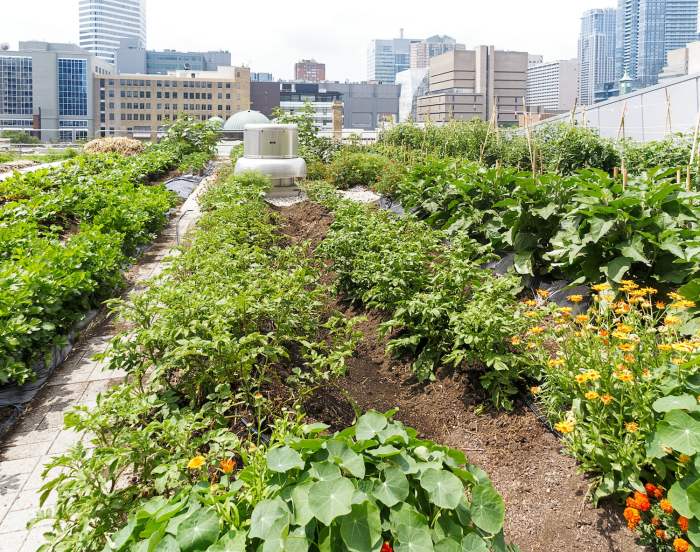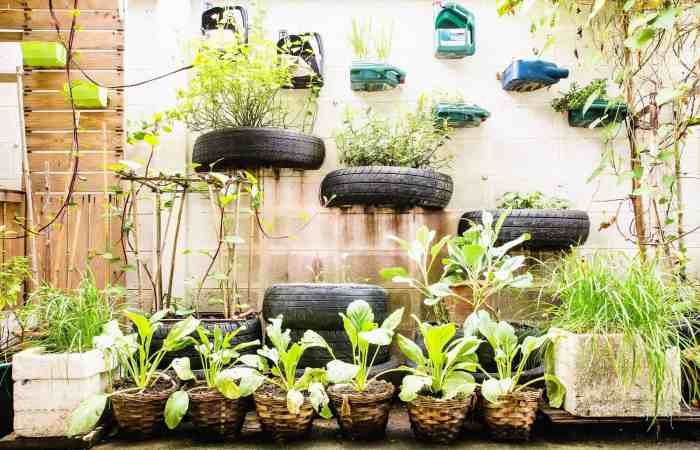Urban gardening is not just a trend; it’s a lifestyle that brings nature into the heart of the city. From rooftop gardens to guerrilla gardening, this green movement is reshaping urban landscapes with sustainable practices and a touch of nature’s beauty.
Benefits of Urban Gardening
Urban gardening offers a multitude of benefits for both individuals and the environment. Let’s explore how this practice can positively impact our lives and our cities.
Advantages for Individuals
- Access to fresh and organic produce right at home, promoting a healthier diet.
- Opportunity for physical activity and relaxation while tending to plants.
- Enhanced sense of accomplishment and pride from growing your own food.
- Potential cost savings on grocery bills by growing your own fruits and vegetables.
Benefits for the Environment
- Reduction of carbon footprint by growing food locally and reducing transportation emissions.
- Creation of green spaces that help mitigate the urban heat island effect.
- Promotion of biodiversity by providing habitats for beneficial insects and pollinators.
- Improvement of air quality through the absorption of pollutants by plants.
Promoting Sustainability in Cities
- Utilization of underutilized urban spaces for food production, maximizing land use efficiency.
- Reduction of food miles and food waste by encouraging a more localized food system.
- Supporting a circular economy by composting organic waste and using it as fertilizer for urban gardens.
Improving Mental Health
- Engagement with nature has been linked to reduced stress, anxiety, and depression.
- Connection to the natural world can enhance overall well-being and mental clarity.
- Opportunity for therapeutic activities like gardening that promote mindfulness and relaxation.
Types of Urban Gardens
Urban gardening comes in various forms, each offering unique benefits and challenges. Let’s explore different types of urban gardens and how they can be integrated into small urban spaces.
Rooftop Gardens
Rooftop gardens are gardens created on the roofs of buildings. They provide a green oasis in urban areas, help reduce the urban heat island effect, and can even insulate buildings, lowering energy costs. However, these gardens require proper structural support, irrigation systems, and regular maintenance.
Community Gardens
Community gardens are shared spaces where people come together to grow fruits, vegetables, and flowers. They promote community bonding, provide access to fresh produce, and educate people about gardening. On the downside, conflicts may arise over garden plots, maintenance, and leadership.
Vertical Gardens
Vertical gardens involve growing plants vertically on walls or structures. They maximize space efficiency, improve air quality, and add aesthetic value to buildings. However, maintaining vertical gardens can be challenging due to limited soil depth, irrigation needs, and plant selection.
Integration into Small Urban Spaces, Urban gardening
Urban gardens can be integrated into small spaces through container gardening, vertical gardening, and creative use of underutilized areas like balconies, windowsills, and alleyways. By utilizing every available space, urban dwellers can enjoy the benefits of gardening even in limited areas.
Guerrilla Gardening
Guerrilla gardening is the act of gardening on unused or neglected public or private land without permission. It aims to beautify urban spaces, increase greenery, and promote community involvement in greening efforts. While guerrilla gardening can face legal issues and opposition from authorities, it has a significant impact in transforming urban landscapes and fostering a sense of community ownership.
Essential Tools and Supplies for Urban Gardening

Starting an urban garden requires some basic tools and supplies to ensure success. Let’s take a look at the essential items you’ll need to kickstart your urban gardening journey.
Basic Tools for Urban Gardening
- Gardening gloves
- Trowel
- Pruning shears
- Watering can or hose
- Hand rake
Importance of Suitable Containers
Choosing the right containers is crucial in urban gardening as it determines the growth and health of your plants. Opt for containers that provide proper drainage, adequate space for root growth, and are suitable for the specific plant varieties you plan to grow.
Role of Organic Fertilizers
Organic fertilizers are essential for urban gardening as they provide nutrients to the soil in a natural and sustainable way. They help improve soil quality, promote healthy plant growth, and enhance the flavor of fruits and vegetables grown in urban settings.
Selecting the Right Seeds
- Choose seeds that are suitable for the climate and growing conditions of your urban garden.
- Look for high-quality, non-GMO seeds from reputable suppliers.
- Consider the space available in your containers and select seeds that will thrive in that environment.
Urban Gardening Techniques

Companion planting, proper watering, maximizing sunlight, and successful composting are essential techniques for successful urban gardening.
Companion Planting
Companion planting involves growing different plants together to benefit each other. For example, planting marigolds alongside tomatoes can help repel pests naturally, reducing the need for chemical pesticides.
Proper Watering Techniques
Ensuring that plants receive adequate water is crucial for urban gardening success. Avoid overwatering by checking the soil moisture level before watering again. Use a watering can or drip irrigation system to provide water directly to the plant roots.
Maximizing Sunlight in Small Spaces
To maximize sunlight in small urban spaces, place containers or raised beds in areas that receive the most sunlight throughout the day. Consider vertical gardening techniques to make the most of limited space and sunlight exposure.
Creating a Successful Composting System
In an urban environment, creating a successful composting system can help reduce waste and provide nutrient-rich soil for your plants. Use a small compost bin or vermicomposting (worm composting) system to recycle kitchen scraps and organic materials into compost for your garden.